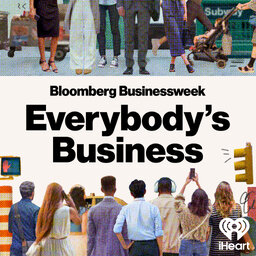OpenAI vs. Sam Altman
OpenAI, which you may have heard a lot about lately, is the company that developed ChatGPT, a wildly popular AI bot which you most certainly have heard of. OpenAI’s board of directors recently purged the company’s CEO, Sam Altman, and various stakeholders – employees, investors, Microsoft – saw to it that Altman was reinstated. The board itself then faced a purge. This particular collision has it all: Silicon Valley innovation and Silicon Valley hubris, money, managerial snafus, ugly battles, promising outcomes, and, of course, artificial intelligence. AI is set to transform the world, we’re told. Ingenuity and upheaval at OpenAI offer a way for us to consider all of that. Parmy Olson and Dave Lee are both Bloomberg Opinion technology columnists.
 Crash Course
Crash Course


